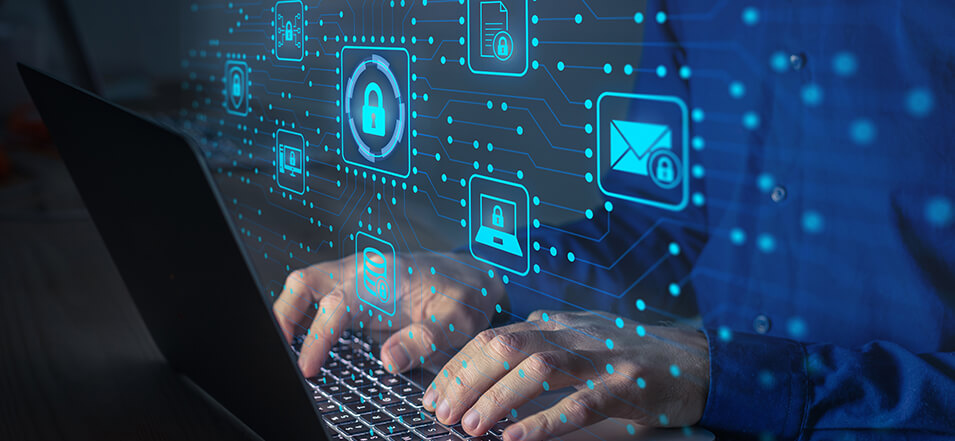Protect Yourself from Cybercrime

Thankfully, you don’t need a degree in IT or complete knowledge of hacking methods to protect yourself. Small, simple actions will make an exponential difference in your personal security and decrease your risk for fraud.
Create Strong Passwords
One of the most effective ways to protect your accounts is to create unique usernames and passwords for each. This will ensure that, should an attacker gain access to login information for one online account you hold, your other accounts will remain inaccessible. To keep track of them all, we recommend using a password manager like Last Pass or 1Password.Helpful hint: Try mixing up your username by adding capital letters, numbers or other special characters that make it harder for hackers to guess. If your name is Jane Doe and you were born in 1976, a hacker very possibly might guess Jane_Doe76, but they’re unlikely to guess J@nE_L0ves_çat$. Pair that with a complex password and your chances of falling victim to fraud plummets.
When possible, opt for a multi-factor authentication login. This will ensure your account remains safe, even if an attacker does manage to gain access to your login credentials.
You can read more password tips to keep hackers and attackers at bay here.
Mobile Security Tips
Hackers will often use text messages or phone calls to trick you into sharing information with them or downloading a malicious software onto your device. A few red flags to watch out for are:- Text: Asking for a PIN, your SSN, or a one-time code
- Phone Calls: Using scare tactics or asking for your address or birthday
It’s also important to keep your devices up to date—any defenses you put in place a few years ago and haven’t updated aren’t helping your security anymore. Make sure to set up auto-updates on your devices and install anti-virus protection software if you haven’t already.
Here are a few more steps you can take to protect your phones, laptops, and tablets:
- Use multi-factor authentication
- Always use a passcode to access your mobile devices
- Remove any unnecessary apps
- Use secure WiFi instead of public WiFi
- Disable automatic Bluetooth pairing
- Turn on Find My iPhone or the Android Device Manager
Email Security Tips
Over 270 billion emails are sent each day2, which explains why cybercriminals routinely use this attack surface to target organizations and individuals.Maintaining multiple email accounts is a great place to start—make sure your business and personal emails are separate and consider setting up ‘disposable’ email accounts for any exchanges or purchases you’re not sure about.
Here are a few red flags that can help you spot scam emails:
- Suspicious email addresses
- Misspelled words
- The use of scare tactics
- Links with suspicious URLs (hover your mouse over links to see the URL before you click them!)
- Attachments
- Forms to fill out
Social Media
When using social media, assume that everything you post has the potential to become public. If there’s anything you wouldn’t want your mom or your boss to see, don’t post it at all. It’s also important to check what content is viewable on your public profile, turn off location sharing, and only accept friends/followers who you know.Passwords for social media are just as important as your email and your bank account—use different, secure passwords for each, and enable multi-factor authentication when it’s available.
At United, we work hard to protect your personal information, provide you with a dependable online experience, and give you the tools you need to keep your information secure. However, online safety is a joint effort, and we can all do our part to protect ourselves.
If you ever get a phone call, text, or email from someone claiming to be your banker, remember that a banker would never ask you to fill out a form, download an attachment, or provide the following pieces of information:
- Account Number
- Username
- Password
- PIN
- Birthday
- Address
- A one-time code
- A security question answer
If you think you’re the victim of fraud or that someone is attempting to access your personal financial information, contact us immediately. We will help you take the best next steps.
1 IT Chronicles, 2020
2 The Security Awareness Company, 2020












